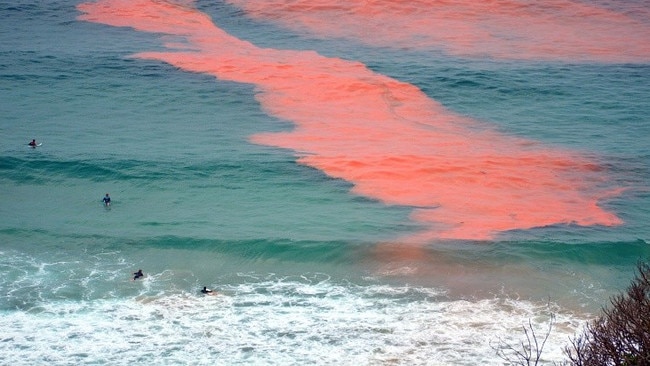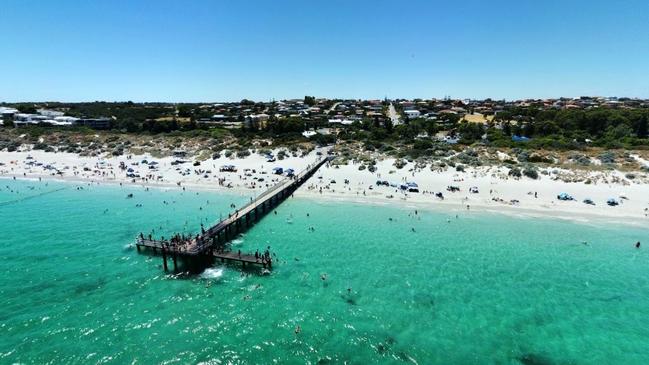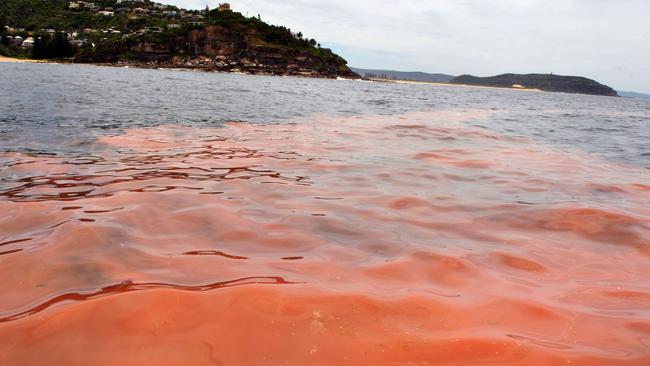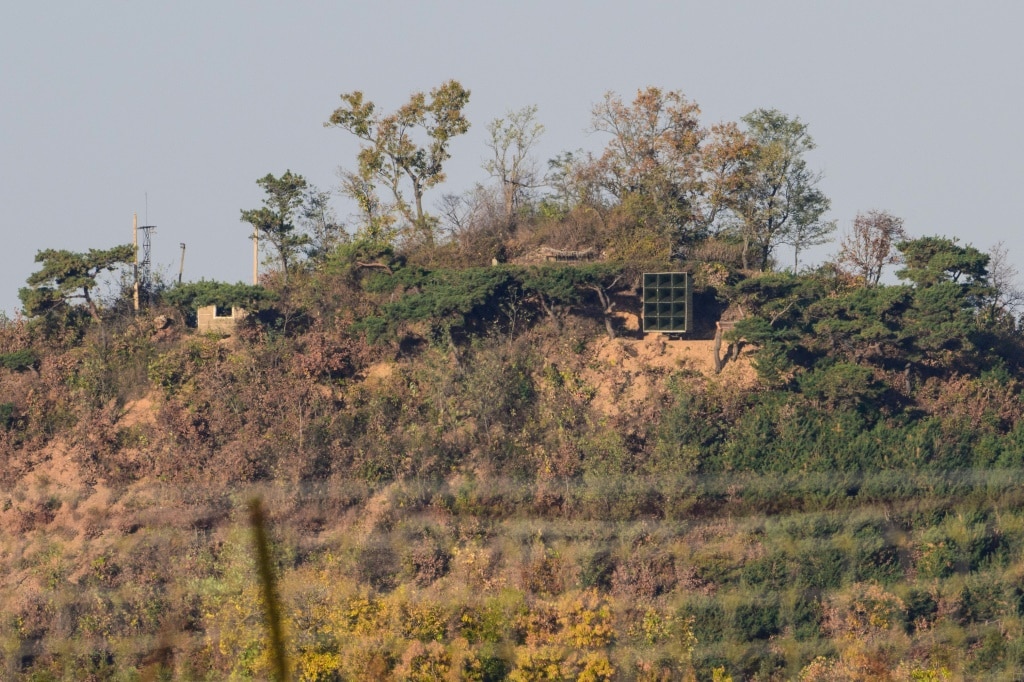Beachgoers warned to stay out of water after algal bloom erupts along coastline
Authorities have warned beachgoers to stay out the water after a dangerous phenomenon appeared along a major city’s coastline.

Beachgoers have been warned to avoid coming into contact with an algal bloom that has erupted along parts of a city coastline.
Shoreline sampling in Perth has confirmed these sporadic and patchy algal blooms to be Trichodesmium cf erythraeum.
The algae is commonly referred to as red tide or saw dust, which appear as brown-red-orange-yellow surface scum with the appearance of an oil slick, or a pinkish to pale green colour when it decomposes in surrounding water.
The blooms can result in skin irritations such as stinging, tingling or a rash, particularly in people with sensitive skin when people come into contact with the algae.
Other symptoms may include a sore throat, nausea and general weakness.

WA Health senior scientific officer Jared Koutsoukos said people should avoid recreational activities such as swimming, diving, kayaking, jet skiing and fishing in areas where significant water discolouration or scum was visible, as this water could contain algae.
“We’re advising beachgoers, along with their pets, to stay out of the water where there are signs of water discolouration and algal scum,” he said.
“If out fishing, you should not collect and consume wild shellfish if algal blooms are present.”
WA Health is working with the Department of Water and Environmental Regulation, and relevant local government authorities to monitor and assess potentially impacted foreshore areas and erect health warning signs where practical.


As the blooms are transported by wind and tide, they can come and go fairly quickly, and also have the potential to extend to far-reaching areas along the WA coastline.
Any person who comes into contact with discoloured water or algal scum should immediately rinse it off with clean water and seek medical attention if they become unwell.
Members of community can report algal blooms or water discolouration via algalblooms@health.wa.gov.au or via Pollution Watch.
Originally published as Beachgoers warned to stay out of water after algal bloom erupts along coastline


